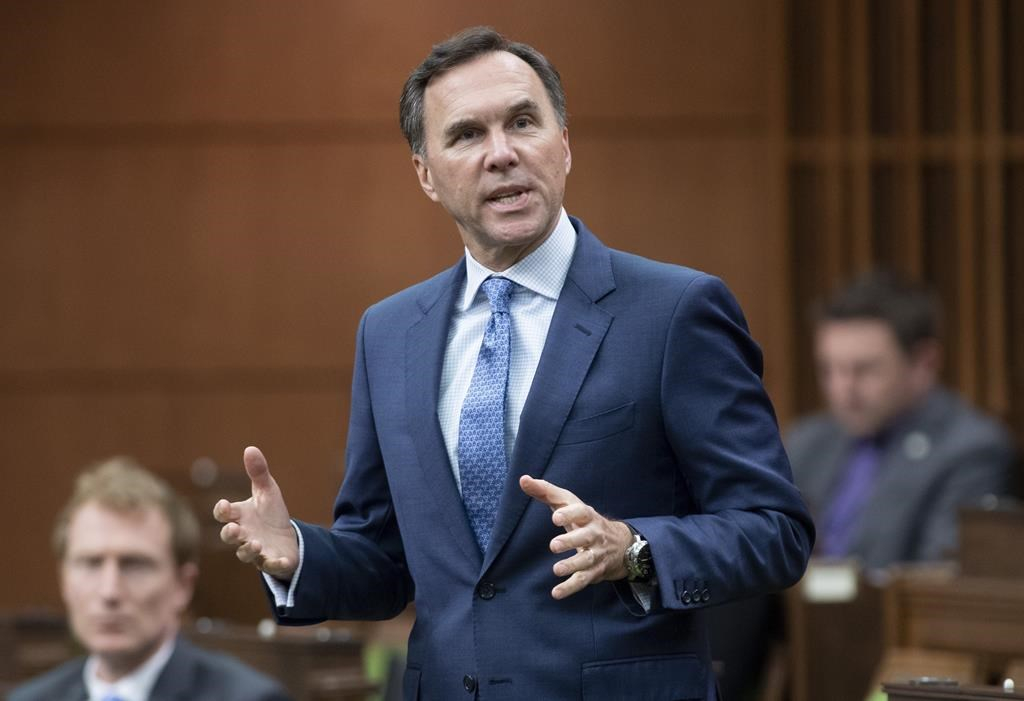Analysts say Canada should focus on implementing measures to boost economic growth and incentives to get people back to work instead of managing its budget deficit.
Due to the country's growing debt, Fitch downgraded Canada's rating over a week ago.
Craig Wright, the chief economist at Royal Bank of Canada, says that the only solution for large deficits is growth, which requires a pro-growth action plan.
He added that government spending should be toward the "economy of the future" than the "economy of the past."
Further stimulus measures such as a green growth strategy and investing in infrastructure, such as smart infrastructure, would be necessary.
Michael Heydt, DBRS' lead sovereign analyst on Canada, said that fiscal policymakers should be sure that a recovery is underway before they tackle debt consolidation.
He also warned about the potential structural damage to the country's economy if the slowdown lingers.
CIBC Capital Markets's Royce Mendes, a senior economist, said that it is an apparent mistake for the country to turn too quickly toward austerity as its economy requires more support.
With Canada's economy expected by the IMF to contract by 8.4 percent this year, the country is rolling out over C$150 billion in direct economic aid, including financial assistance to workers impacted by the pandemic.
Canada lost triple-A ratings in June when Fitch downgraded it for the billions of dollars it has allocated to help counter the COVID-19-triggered downturn.
Fitch expects Canada's government debt to rise from 88.3 percent in 2019 to 115.1 percent of GDP in 2020.
The country was able to retain its highest debt rating from Moody's, Standard & Poor's, and DBRS.
On Wednesday, Canadian Finance Minister Bill Morneau will outline the current balance sheet to show a new official deficit estimate.



 RBI Holds Repo Rate at 5.25% as India’s Growth Outlook Strengthens After U.S. Trade Deal
RBI Holds Repo Rate at 5.25% as India’s Growth Outlook Strengthens After U.S. Trade Deal  South Korea Assures U.S. on Trade Deal Commitments Amid Tariff Concerns
South Korea Assures U.S. on Trade Deal Commitments Amid Tariff Concerns  Japanese Pharmaceutical Stocks Slide as TrumpRx.gov Launch Sparks Market Concerns
Japanese Pharmaceutical Stocks Slide as TrumpRx.gov Launch Sparks Market Concerns  Vietnam’s Trade Surplus With US Jumps as Exports Surge and China Imports Hit Record
Vietnam’s Trade Surplus With US Jumps as Exports Surge and China Imports Hit Record  Asian Stocks Slip as Tech Rout Deepens, Japan Steadies Ahead of Election
Asian Stocks Slip as Tech Rout Deepens, Japan Steadies Ahead of Election  Thailand Inflation Remains Negative for 10th Straight Month in January
Thailand Inflation Remains Negative for 10th Straight Month in January  Bank of Japan Signals Readiness for Near-Term Rate Hike as Inflation Nears Target
Bank of Japan Signals Readiness for Near-Term Rate Hike as Inflation Nears Target  Trump Signs Executive Order Threatening 25% Tariffs on Countries Trading With Iran
Trump Signs Executive Order Threatening 25% Tariffs on Countries Trading With Iran  Global Markets Slide as AI, Crypto, and Precious Metals Face Heightened Volatility
Global Markets Slide as AI, Crypto, and Precious Metals Face Heightened Volatility  Trump Lifts 25% Tariff on Indian Goods in Strategic U.S.–India Trade and Energy Deal
Trump Lifts 25% Tariff on Indian Goods in Strategic U.S.–India Trade and Energy Deal  Dow Hits 50,000 as U.S. Stocks Stage Strong Rebound Amid AI Volatility
Dow Hits 50,000 as U.S. Stocks Stage Strong Rebound Amid AI Volatility  China Extends Gold Buying Streak as Reserves Surge Despite Volatile Prices
China Extends Gold Buying Streak as Reserves Surge Despite Volatile Prices  Silver Prices Plunge in Asian Trade as Dollar Strength Triggers Fresh Precious Metals Sell-Off
Silver Prices Plunge in Asian Trade as Dollar Strength Triggers Fresh Precious Metals Sell-Off  Trump Endorses Japan’s Sanae Takaichi Ahead of Crucial Election Amid Market and China Tensions
Trump Endorses Japan’s Sanae Takaichi Ahead of Crucial Election Amid Market and China Tensions  U.S. Stock Futures Slide as Tech Rout Deepens on Amazon Capex Shock
U.S. Stock Futures Slide as Tech Rout Deepens on Amazon Capex Shock  South Africa Eyes ECB Repo Lines as Inflation Eases and Rate Cuts Loom
South Africa Eyes ECB Repo Lines as Inflation Eases and Rate Cuts Loom  India–U.S. Interim Trade Pact Cuts Auto Tariffs but Leaves Tesla Out
India–U.S. Interim Trade Pact Cuts Auto Tariffs but Leaves Tesla Out 































